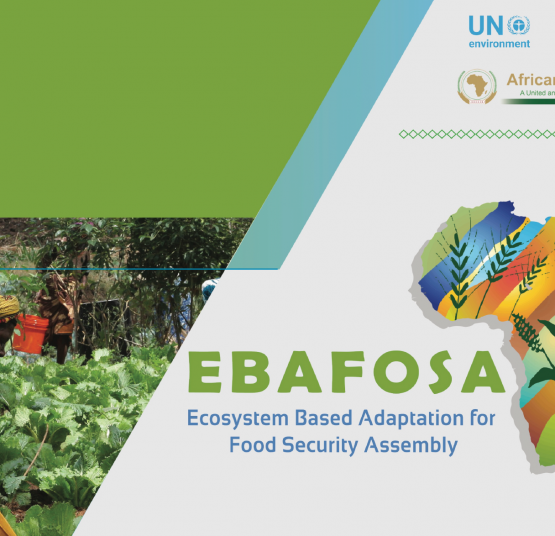By Obioma C. Appolos
In a bid to help Nigeria maximize its potential in tomato production and the financial gains thereof, as well as create thousands of jobs for its teeming youth, the United Nations Ecosystem Based Adaptation for Food Security Assembly (UNEP-EBAFOSA); has called on stakeholders in the tomato industrial to take advantage of its proposed incentives which seeks to facilitate operationalization of positive climate change guidelines.
EBAFOSA, hinted that the said incentives, is in tandem with the Standard Organization of Nigeria’s (SON) guidelines; and is aimed at enriching stakeholders in tomato production, provide at least 60,000 jobs for a start, increase Nigeria’s GDP and importantly protect the environment against the dangers of climate change.
In his presentation at the Tomato Stakeholders meeting in collaboration with SON in Abuja recently, the UN Environment Africa Climate Change Coordinator, Richard Munang, explained that the incentives would be in form of organic inputs like: organic fertilizer, seeds, pest and weed control. He also mentioned clean energy such as: solar powered micro-irrigation, solar driers etc, as part of the incentives.
“The gathering storms of climate change threatens a 25% per hectare reduction in crop productivity in the tomato production areas of Nigeria, threatening livelihoods of over 200,000 farmers and an entire supply chain of enterprises they serve.
“To make it clearer, the infamous pest attacks in 2016 that caused an 80% loss in tomato production, and a shortage of raw materials resulting in closure of the iconic 20 million tomato processing factory, and a loss of thousands of jobs and incomes for farmers, could not have happened if Nigeria’s tomato value chain was adequately climate-proofed.
“Application of solar driers and solar fridges could have enabled earlier harvesting to prevent total loss while use of best practice organic & environmentally sustainable approaches could have improved the resistance of the tomato plants against this pest.

James Oyesola.
“Left unaddressed, climate change is set to exacerbate these losses. Cumulatively, climate change is projected to cost 6 to 30% of Nigeria’s GDP by 2050, translating to $100 billion to $460 billion in losses, that threaten realization of shared socioeconomic development aims as enshrined in the Economic Recovery and Growth Plan (ERGP) & Vision 2020.
“The work of every state agency including the Standards Organisation of Nigeria (SON), cascades up to drive these shared economy-wide objectives.” He stated.
Richards went on to say that; “UNEP seeks to collaborate with SON to support you the stakeholders by operationalizing this guide, to maximize your production with attendant huge economic benefits.
“This country, which is the second largest producer of tomatoes in Africa, expends a further $1 billion every year, importing tomato paste. These challenges present a billion-dollar worth market opportunity for the SON to tap into, and again, this is what UNEP-EBAFOSA is set to support you do by leveraging on climate action enterprises that are already taking root across the country.
“When a tomato farmer in the North of Nigeria for instance, is linked to organic inputs, like organic fertiliser, organic seeds, organic pest and weed control to grow their tomato, they automatically increase chances of getting harvest, considering these organic approaches, that qualify as Ecosystems Based Adaptation (EBA) are more resilient to the changing climate and its impacts. Most importantly, they set themselves apart to tap niche markets, among increasingly sophisticated consumers who prefer organically produced foods to preserve their health as well as that of their environment.
“With the operationalization of the tomato production policy, Nigeria is set to convert the $15 billion losses and $1 billion in imports into revenue and enterprise opportunities, cumulatively unlocking 60 000 direct jobs, a big boost to Nigeria’s economIc aims.

“Nigeria’s tomato market opportunities urgently need a defender, a defender to make recouping the up to $16 billion in annual market opportunities a reality. And to ensure Nigeria’s comparative advantage as second largest tomato producer in Africa counts in form of food secure homes, incomes & jobs for our youth, more money in more pockets, increased revenues for government.”
Earlier in his remarks, Mr. James Oyesola, UNEP-EBAFOSA Nigeria’s National President, noted that compliance and implementation of through the incentives would create more wealth and jobs for Nigerians.
“The compliance market incentives for agro-industrialization a guide towards fulfilling tomato value chain products for the continental and Global market is first of its kind in Nigeria. It was prepared with technical backstopping of United Nations Environment (UNEP) through the Ecosystem Based Adaptation for Food Security Assembly (EBAFOSA) policy lead by Dr. Richard Munang of UNEP.
It’s a germane and very important logic to restructure implementation and enforcement of existing standards applicable to the Standard Organization of Nigeria (SON) in areas of clean energy, sustainable nature based / organic agriculture, health, quality, safety and ICT.” He added.






























